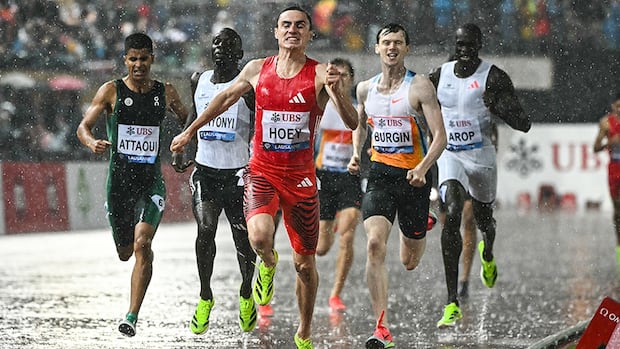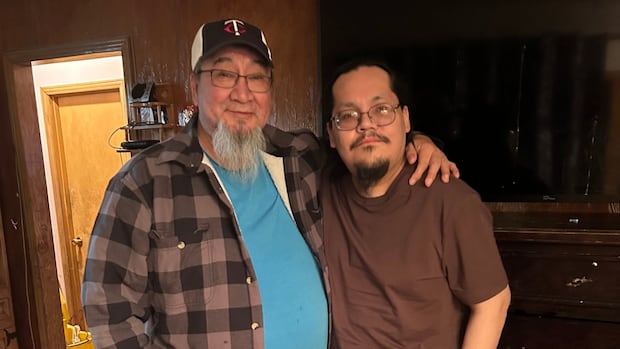At nearly every one of their daily wildfire media briefings, Saskatchewan officials are asked why they haven’t called on the military for support.
Right next door in Manitoba, late last month, military helicopters airlifted residents from remote communities.
And year after year, the Canadian Armed Forces respond to natural disasters under a program called Operation LENTUS. In the last two years alone, that has included sending in Type 3 firefighters to Alberta, B.C. and Nova Scotia, when requested.
But this year, despite facing one of its earliest, most aggressive fire seasons, Saskatchewan has not asked the federal government for the military’s help to fight the fires.
Wildfire evacuees are expressing their anger with the Saskatchewan government, saying they’ve received confusion, neglect and silence instead of relief.
At the latest briefing on Monday, Saskatchewan’s Public Safety Minister Tim McLeod was asked, again, why not.
“I don’t know how else to say it other than, we are asking for what we need and they are offering what they have,” McLeod said.
Saskatchewan doesn’t need airlifts or Type 3 firefighters, he said. Type 3 firefighters are qualified firefighters who support Type 1 (trained wildfire crews) and Type 2 (First Nations and northern community crews) firefighters, and “are normally used on a fire line that is under control or in the mop-up stage,” according to the Saskatchewan Public Safety Agency (SPSA) website.
McLeod said provincial and federal officials communicate daily, and on Monday the province did make a request to the federal government for two base camps and tents for sheltering up to 200 people, to be used for when crews are rebuilding communities.
Saskatchewan has asked for help from other jurisdictions with “highly qualified” wildfire crews, SPSA vice-president of operations Steve Roberts has said.
“From an operational point of view and a qualified, experienced individual who knows how to fight fire, our best bet for Saskatchewan is to bring them in from our neighbouring wildfire agencies like British Columbia, like Oregon, like Alaska, and that’s why we have not brought [the military] in to date,” he said last week.
The Saskatchewan Public Safety Agency says importing highly-trained firefighting resources from other provinces, territories and the United States is better than calling on the Canadian Armed Forces.
Those answers are not satisfying some residents who watched wildfires threaten their communities during the last few weeks.
Sheri Parr’s husband is a volunteer firefighter in Creighton, Sask. She said he and his crew are absolutely exhausted after sleeping on dirt roads and concrete floors while they protect their community, with “zero government support” from the start.

Town councillors stayed behind to take care of the firefighters while local businesses made sure they had necessities, Parr said, and community members reached out to offer their pumps, hoses, generators and vehicles.
“Where was the government support during all of this? We should have called in the military and I don’t understand why we wouldn’t take the offer of more help,” she said at a news conference held by the Opposition NDP on Monday.
“I want this government to take seriously the help that these people need to be ready, if the wind shifts or more fires occur.”
Saskatchewan’s sole Liberal MP, Buckley Belanger, said he thinks the military could provide a lot of extra resources, if asked. He said Prime Minister Mark Carney has convened several emergency meetings and has been ready to help.
“He was very, very concerned and wanted to see what we were doing as a government,” Belanger told CBC Radio’s The 306 host Candice Lipski on Monday.
Jordan McPhail, NDP MLA for the northeastern riding of Cumberland, said the province should ask for help from the federal government, like it did in 2015. That year, about 850 members of the armed forces supported firefighting efforts in the northern part of the province.
“That support is available again now. The federal government has made that very clear. But instead of picking up the phone, [Premier] Scott Moe dismissed the idea,” McPhail said.
“When lives and homes are on the line, you don’t leave help sitting on the table. You don’t leave exhausted firefighters and aid workers or the evacuees … without the support that they need. That is just simply not leadership.”
Cyndi Pedwell, who evacuated Denare Beach, Sask., and lost her home to the flames, says the wildfire devastated the bottom half of her community. Pedwell says that officials didn’t act fast enough, adding ‘I feel like we were neglected.’
Up-to-date info on active fires, smoke and related topics is available at these sources:








